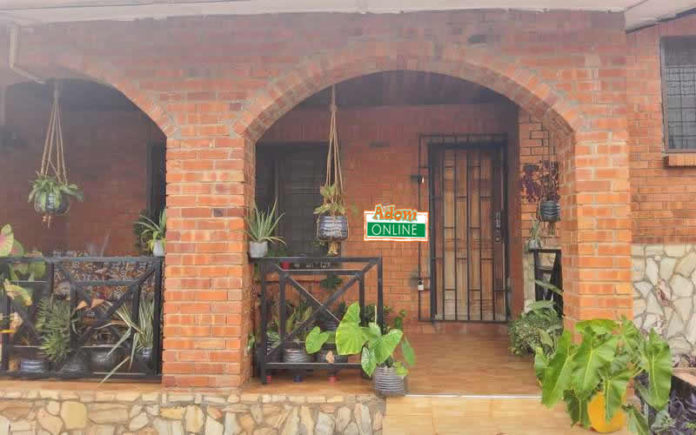The debate on the phenomenon of the Lesbians, Gays, Bisexual, Transgender, Queer, I+ (LGBTQI+) agenda has been raging on for some time now and doesn’t look like abating anytime soon.
It is a recurring one, and anytime it has resurfaced, it has splited heads with majority of Ghanaians openly showing abhorrence to the practice.
Despite the debate being a recurring one, the recent one has been quiet fierce and forceful with majority of Ghanaians expressing open disgust at the mileage the LBGTQI+ community seems to be gaining in the country.
The brazen display of bravado by the gay community in Ghana to move out of their obscurity to open an office to give impetus to their activities in spite of the opprobrium that is generated anytime their activities are brought into the public sphere is perhaps what has made the recent public outburst quite different.
In the milieu of the debate, a lot of voices, ranging from that of the politician, religious leaders, opinion leaders, traditional rulers, and the ordinary man have been heard on the issue with outright condemnation.
At an ordination ceremony at the Angelican Church about two weeks ago in Asante Mampong, President Nana Addo Dankwa Akufo-Addo, was heard loud and clear and without any equivocation reaffirm his commitment to ensure that activities of the LGBTQI+ remain illegal for as long as he remains the president of the republic.
Curiously enough, conspicuously missing in the sea of voices is that of the vociferous Civil Society Organisations (CSOs) in the country.
Of significant interest is not the fact that, their voices have been characterized by a loud silence, but rather it is quiet intriguing that ‘our all-knowing’ CSOs who have often assumed the posture of the peoples representative, demanding of governments how to run the country will refuse to proffer an opinion on such a serious national issue.
The issue of LGBTQI+ has always been situated within the narrative of religious and cultural appropriateness or inappropriateness of the Ghanaian Society with little or no intellectual perspective, and one would have thought that the current debate offers ‘our all-knowing’ CSOs who often portray themselves as masters of all they surveyed- that is from archeology to zoology, the opportunity to offer some perspective which will shine more light on the discourse to either convince Ghanaians to continue to reject it or begin to accept it for how bad it is.
Very uncharacteristic of our Imanis, CDDs and Occupy Ghanas, they have gone dumb on the debate and their loud silence have got many discerning Ghanaians to question why they are silent on such a sensitive issue which is bedeviling the whole world with Ghana not being an exception.
To some Ghanaians, the silence of ‘our all-knowing’ CSOs can only be explained to mean two things, and that is, either they are funded by the larger LGBTQI+ community for which reason if they dare speak against them in line with what the majority of Ghanaian want, they may lose their sources of funding or are afraid to lose the support of Ghanaians if they dare speak in support of the LGBTQI+.
Caught in this situation, ‘our all-knowing’ CSOs have chosen the easier and safer option of staying indifferent to the debate on whether to legalise or further criminalise homosexuality in the country. However, their posture to some Ghanaians is denying policy makers of the appropriate input for future legislation.
The quest to see ‘Our all-knowing’ CSOs make their input into the raging debate is borne out of the fact that, the law and morality are closely intertwined and the opinions of ‘Our all-knowing’ CSOs will go a long way to shape our laws on this creeping phenomenon.
It is important to emphasise here that there is a thin line between laws and morals since most laws are often derived from moral practices.
Societies create laws as social policies to regulate behavior- some punitive, others restrictive, yet some are restorative with others being distributive. Laws are made mainly to ensure harmony among people and also create justice in societies.
They are generally good despite the fact that, we may sometimes be aggrieved with it and therefore dislike its reach. Nevertheless, laws must not be immutable but should reflect the times as society evolves. In democratic societies, Interest groups are formed to tip laws to their favor.
Civil right groups are formed to advocate certain civil liberties, including human right groups whose main focus is to fight unjust treatment of humans. If CSOs do advocate the rights and privileges of societies, why are our own shying away from advocating for the rights of the LGBTQI+ community in Ghana?
The LGBTQI+ is viewed as a cultural war against Africa, and Ghana is being used as springboard to propagate it in West Africa. It is for this reason that our ‘all knowing’ CSOs must make their voices known.
As we speak there are rumours that the gay community intends to sponsor between 15 and 25 people to contest and enter the next parliament. It is therefore very important that we act and act decisively before the situation gets out of hand.
We owe it a collective responsibility to deal with this canker once and for all. Our ‘all knowing’ CSOs cannot and must not be allowed to stay out of this decision making process.
Their role in our governance processes must not be limited to merely criticising and accusing government of corruption over procurement issues. They must speak now or forever keep quiet on national issues.

